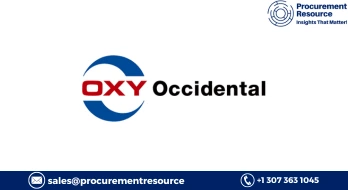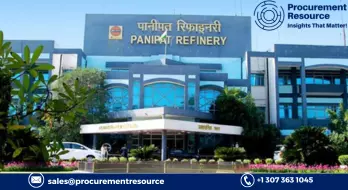Petronas and Idemitsu have Recently Collaborated to Ratchet up The SAF Portfolio

Malaysian state-owned oil firm, Petronas, and the Japanese refiner, Idemitsu, recently entered into an agreement to enhance feedstock sourcing and expand the sale and distribution networks for sustainable aviation fuel (SAF). As part of their collaboration, both companies will prioritize the development of non-edible oil SAF feedstocks, specifically pongamia and jatropha. While the agreement was formalized last month, it primarily addresses a feasibility study concerning feedstock costs and security. Notably, the study does not encompass research on SAF production, as clarified by Idemitsu.
Request Access To The Latest Price Trends of Fuel Oil
Interestingly, neither of the firms clarified if exploring used cooking oil (UCO) supply chains would be part of their partnership's scope. However, it was mentioned that Petronas has aspirations to process nearly 650,000 tons annually of waste-based feedstocks. These include UCO and palm waste. To realize this, Petronas aims to collaborate with the Japanese biotechnology company Euglena and the Italian oil giant Eni to construct a 12,500 barrel per day biorefinery in Malaysia's Pengerang region. This was restated by the general manager of retailer Petronas Dagangan, Harlina Pikri, during a conference in Malaysia's Putrajaya earlier this month. Both companies acknowledged the fierce global competition in securing UCO supplies, recognizing it as a significant constraint.
In a related move, Pertamina launched a UCO collection initiative at selected Malaysian filling stations. This came after a successful pilot program in various locations, including Putrajaya, earlier this year. However, Pikri emphasized that the quantities obtained from this initiative might be modest. The primary goal of this program is to raise consumer awareness regarding UCO recycling.
Read More About Fuel Oil Production Cost Reports - Get Free Sample Copy in PDF
On the other hand, Idemitsu has ambitious plans for SAF production. The company aims to achieve a SAF output of 500,000 kilolitres per year by 2030. This target encompasses various processes, including hydroprocessed esters, fatty acids, and alcohol-to-jet processes. The company's long-term strategy involves the inauguration of its inaugural 100,000 kl/year ATJ plant at their Chiba refinery within the next few years. In addition, by the end of this decade, Idemitsu is also exploring the production of Hefa SAF.
According to the article by Procurement Resource, Petronas and Idemitsu have partnered to boost sustainable aviation fuel (SAF) feedstock sourcing, focusing on non-edible oils like pongamia and jatropha. Their agreement encompasses a feedstock feasibility study but excludes SAF production research. While Petronas aims to process waste-based feedstocks at a new Malaysian biorefinery, global competition for used cooking oil (UCO) remains a challenge. Meanwhile, Idemitsu targets 500,000 kilolitres of SAF production annually by 2030, with plans for a plant opening by 2027.




